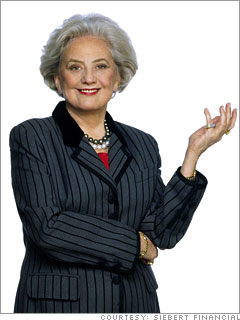Chairman and CEO, Siebert Financial
When I walked into my office at 444 Madison Avenue and saw those blocks of stocks dropping - frankly, I was shocked. The phones were ringing off the hook; people didn't believe their stocks could go down that fast. I had never been through anything like that, and I was very uneasy because I didn't know what my firm would look like at the end of it. You know what kept me sane? My office was on the second floor and I could look out the window, and I saw people buying hot dogs - the action on the street looked normal. They weren't running around going nuts; they were eating hot dogs. And I thought, Well, this may be changing my life, but by the look of the people on the street, it is not changing theirs.
I remember when I walked out of the office at the end of that day, my firm didn't owe a dime, but I knew there was a lot of damage. It changed the way I ran my business, because one of my clients' margin accounts went broke and I had to put up a considerable part of my capital at the time. I said, "I'm never going to allow any single margin account to ever have that influence on my firm again." I became much more conservative.
I now advise my friends and clients, "If you have margin, you have to be prepared to back it up." I had a client who came into the office crying. He had been head of a major company in the Midwest, and he had to liquidate his entire bank account to meet his margin call. This was his retirement money. That is serious stuff.
At that time we didn't have our own margin clerks. I was dependent purely on the clearing firm that I had trusted. But I realized it would be better if my staff was responsible for monitoring that in the future. We now have a few people who do nothing but look at the margins during the day on some of the bigger, more active accounts, and I know the clients appreciate it, because when we find they are getting close, we call them, as we should do. They are not going to get stuck like that again.

